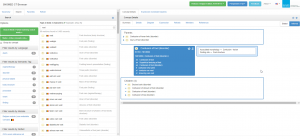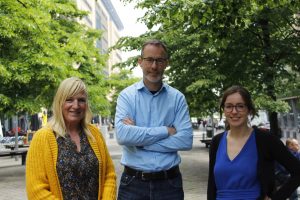To enable unambiguous, meaningful exchange of information between various medical care providers, the medical sector needs common terminology. In 2013, Belgium opted for SNOMED CT®, an international standard currently used by more than 50 countries. The organisation responsible for defining and making the Belgian national version available is the terminology centre in the Federal Public Service (FPS) Health, Food Chain Safety and Environment. An important condition for implementing the system in Belgian software applications (electronic patient files, for example) is the translation of labels into French and Dutch, which poses a considerable challenge. Guidance and technical support in the process are indispensable, not only because of the gigantic volumes, but also due to the fact that the translation can only be done by doctors and health experts.
SNO…what?
SNOMED CT is a medical collection of 350,000 concepts, each with its own unique code and an English label. A common language for health professionals and researchers is achieved both nationally and internationally using unique coding based on unambiguous definitions of each concept. By introducing this unambiguous terminology, the quality of the information flow and information exchange will increase. This will in turn contribute to improved patient safety, quality, effectiveness and efficiency of care.

SNOMED CT browser
Astrid De Win – Terminology Project Coordinator – explains with an example: “If you decide to visit a different hospital in Europe, the diagnosis is automatically translated into the recipient hospital’s language. For example: Should I break my foot while on holiday in Spain. When I visit my doctor in Flanders, he can immediately see a Dutch version of the diagnosis from the Spanish hospital.”
The strength of the system is that concepts in SNOMED CT are hierarchically structured and interrelated. Nathalie De Sutter, who works as an Untranslate consultant on the project, explains:
“When the doctor talks about ‘viral pneumonia’, his computer immediately knows that this is an infection of the lungs, an inflammation is involved, and it was caused by a virus. This extra information is derived from the relationships between the concept and other concepts. “
Help from experts
Crowdsourcing techniques are used for translation into French and Dutch. The experts not only see the terms to be translated in the cloud-based system, but also have access to the context of the concept within the hierarchy, similar translations and their origins.
Nathalie explains further: “The clinical concepts are translated by doctors and other healthcare experts using their medical background and experience; they are the only ones who know which terms are used effectively in clinical practice. In addition, they are supported by state-of-the-art translation technology such as translation memories, machine translation and QA tools. And of course, this is all carried out in an adapted, user-friendly, online working environment. As a result, SNOMED CT really uses the language used by professional caregivers.”

Nathalie, David & Astrid from FPS Health
“Thanks to Nathalie’s network, we have access to linguists that we can use to ensure everything is linguistically correct. Detailed translation guidelines ensure clear structure. We are therefore very satisfied with the close cooperation with Untranslate and Cronos. Because of her presence in the workplace, Nathalie is part of our team, which makes coordination easy.”
Future proof
David Op de Beeck – Terminology project leader – looks ahead: “The intention is that medical software packages will support SNOMED CT in order to facilitate the electronic exchange of (patient) data. Sufficient translations must be made available within the system over three years for this to be done efficiently. After that, the focus of the terminology project will begin to shift more and more towards services and maintenance of the existing terminology in Dutch and French. After all, the international edition of SNOMED CT is constantly changing.”
Untranslate has several specialists who can provide advanced expertise and experience in the field of ontology, semantic search and NLP. Contact us for more information.
If you want to take a look at how SNOMED CT looks in the online browser, you can go here: https://browser.ihtsdotools.org/index-ie.html. You can also find more info on www.terminology-center.be
Would you like to learn more about SNOMED CT? Watch the following video: http://www.snomed.org/news-and-events/articles/demo-clinical-data-analytics-with-snomedct

